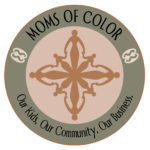
In African American communities, the subject of mental health has often been shrouded in silence and stigma. Historically, systemic barriers and a legacy of mistrust towards the healthcare system have compounded this issue, making conversations about mental well-being exceedingly rare. However, as awareness grows, so does the understanding that overcoming stigma is not just necessary but vital for the health and resilience of the community, especially among mothers who bear the brunt of this silence.
Mental health stigma in African American communities is multifaceted. It’s rooted in cultural norms that valorize strength and self-reliance, often interpreting struggles with mental health as weaknesses or personal failings. For African American mothers, this pressure is intensified by societal expectations and the “strong Black woman” archetype, which champions endurance and sacrifice, sometimes at the expense of personal well-being. This internalized stigma can deter mothers from seeking help, fearing judgment or misunderstanding from within their community and beyond.
The silence surrounding mental health issues is not without consequence. It can lead to isolation, untreated mental health conditions, and in severe cases, can be life-threatening. Overcoming this stigma is crucial, requiring a community-wide effort to shift perceptions and foster an environment where mental health is openly discussed and prioritized.
One pathway to breaking down these barriers is through education. Increasing mental health literacy in African American communities can demystify mental health issues, clarifying that they are common, treatable, and not indicative of personal weakness. Community leaders, churches, and organizations can play a pivotal role in this educational effort, offering resources and creating platforms for dialogue.
Moreover, representation matters. Seeing African American mental health professionals can provide reassurance and encourage individuals, particularly mothers, to seek support. It reflects an understanding of cultural nuances and provides care that is both empathetic and informed. Highlighting stories of mental health challenges and recovery can also be powerful, showing that it’s possible to seek help and thrive, despite the difficulties.
Creating safe spaces for conversation is another critical step. Support groups, whether formal or informal, can offer solace and understanding. For African American mothers, these spaces can be a source of strength, allowing them to share experiences, coping strategies, and find communal support.
Ultimately, overcoming stigma around mental health in African American communities, especially among mothers, is about nurturing a culture of compassion, openness, and proactive care. It’s about affirming that mental health struggles are a part of the human experience, deserving of attention and support, not judgment or silence. Through education, representation, and dialogue, we can begin to dismantle the barriers to mental health care, empowering mothers and communities to embrace healing and resilience. This journey towards openness and understanding is not just a path to improved mental health but a testament to the community’s strength and commitment to well-being for all its members.
With Love, Lakischa Smith
Meet Lakischa Smith, a proud mother and a dedicated public health advocate. With a Bachelor’s from Dillard University and a Master’s in Public Health from Florida International University, she’s committed to sharing honest narratives about black motherhood. Lakischa believes in fostering sisterhood to combat the pervasive forces of white supremacy, and empowering African American women to be agents of change for future generations. She asserts that recognizing and addressing our community’s struggles is crucial, for healing is the key to moving forward. Armed with the power of education and a deep belief in collective action, Lakischa is determined to ensure that the issues impacting African American parenthood aren’t just seen—they’re addressed and resolved.










